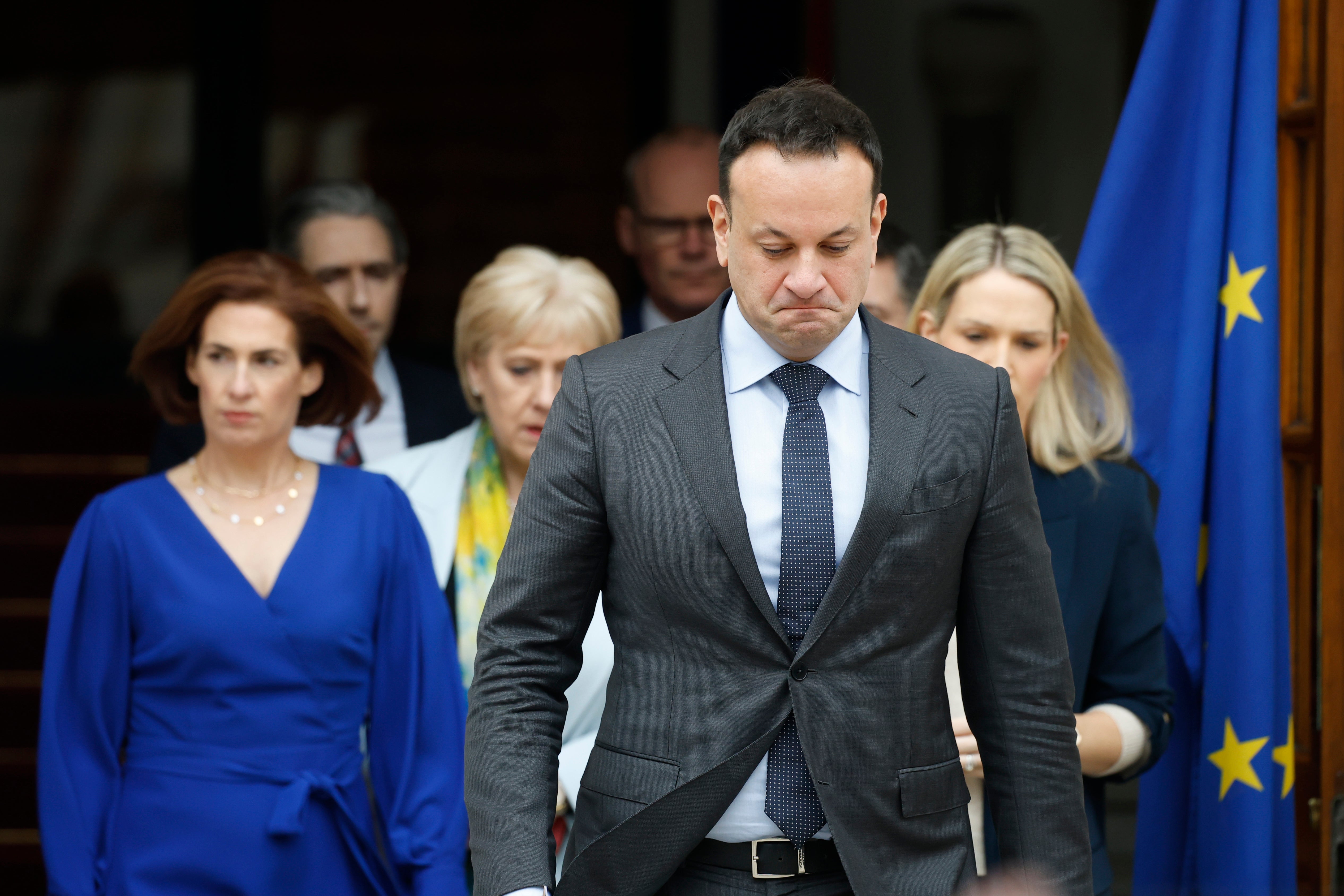Leo Varadkar’s shock resignation puts Ireland’s future at a crossroads
The Taoiseach’s sudden departure raises many questions about how the country will face the years ahead, writes Caitlin White. With multiple crises and a general election looming, Ireland’s next step is crucial


My first encounter with Leo Varadkar, then minister for health, at an artsy rave in Dublin in 2015 marked the beginning of a recurring theme that would define his influence in my life. Both of us avoiding the dancefloor, I attempted to make polite conversation, but he had little interest. Little did I know then his disinterest in what I, an Irish woman in her early twenties trying to start my adult life in Ireland, had to say would become a recurring feature of his political career.
Varadkar assumed office as taoiseach in 2017, amidst the tumultuous years of Donald Trump’s presidency and the early stages of Brexit negotiations under Theresa May. To the outside world, as the first openly gay, half-Indian, youngest taoiseach, he symbolised Ireland’s openness and liberalism.
However, within Ireland, his leadership style, advocating for “people who get up early in the morning” and endorsing neoliberal policies was, for those outside of the middle and upper classes, far from reassuring. The zeal with which he embraced his campaign against welfare fraud as minister for social protection had exposed classist and privileged attitudes that seemed out of touch for a minister with his brief.
Varadkar’s handling of Brexit garnered praise both nationally and within the EU, positioning him for a possible future in diplomacy or politics at a European level. His term as taoiseach was set to be defined by his handling of the process.
That was, of course, until his St Patrick’s Day visit to the White House in 2020 was interrupted by an emergency address to the nation from Washington, when he asked us to work together as a country to save lives and slow the spread of the Covid-19 coronavirus.
Despite a surge in support for opposition party Sinn Fein in the 2020 election, Varadkar’s popularity surged during the crisis as he provided regular, clear updates informed by expert advice. His national addresses regularly featured references to popular culture which attracted international attention and prompted some film stars to “challenge” Varadkar to work obscure quotes into his speeches.
Nevertheless, cracks in his leadership appeared during the election count when he only secured his own seat on the fifth count behind a Sinn Fein, hinting that his political star was starting to fade.
Having steered the country through the early stages of the pandemic, he handed over the reins of taoiseach to Fianna Fail’s Micheal Martin in a power-sharing agreement between the parties. Varadkar was reinstated as taoiseach in December 2022, due to lead for the remaining term of this government, so yesterday’s shock resignation announcement citing “personal and political” reasons has left many confused, and more than a little suspicious.
Personally, I’ve often felt that handing in my notice after a bank holiday weekend would solve my back-to-work blues, so I can relate. But aside from feeling exhausted, the taoiseach did not elaborate. Politically, the writing has been on the wall since the last general election, and two recent developments couldn’t have helped the situation.
The revelation of a Fine Gael TD exodus (ten current TDs have announced they won’t contest the next election, when only 35 were elected in 2020) from the next Dail and the government’s embarrassing defeat in two referendums on 8 March added further strain to Varadkar’s leadership.
All major governments and major opposition parties lobbied for a “yes” vote to both amendments, but the result was a resounding “no” on both accounts. While it’s far too simple, and condescending, to say that every single vote was a protest vote against the government, there was certainly an element of frustration finally being expressed for a section of the electorate. With a general election expected within the next 12 months, it does make one wonder, why the shock resignation? And more importantly, why now?
The legacy he leaves behind is that of a government whose interests lie in money rather than services. Varadkar’s disinterest in, and attitude towards, my conversation all those years ago was reflected hundreds of thousands of times over in the young people who can’t rent (or buy) their own home or who emigrated in search of a better life abroad.
The national purse is certainly healthier than it was seven years ago, but with numbers of homeless adults almost twice what they were in 2017 (according to data from the Department of Housing, Local Government and Heritage), one does wonder, are social services the price we pay to watch the national bank balance grow?
Varadkar’s sudden departure reminds us that, as Sam said to Frodo, and Varadkar later said to the nation, “It’s only a passing thing”. Politics is transient, policies are not.
Will his resignation make way for a government that will focus on addressing the multiple crises of housing, healthcare and the rise of the far right? His resignation forces us to confront the question of who the next taoiseach will be, but also the fundamental values and priorities that will shape our society for these crucial years to come.
Caitlin White is a postdoctoral research fellow at Trinity College Dublin






Join our commenting forum
Join thought-provoking conversations, follow other Independent readers and see their replies
0Comments